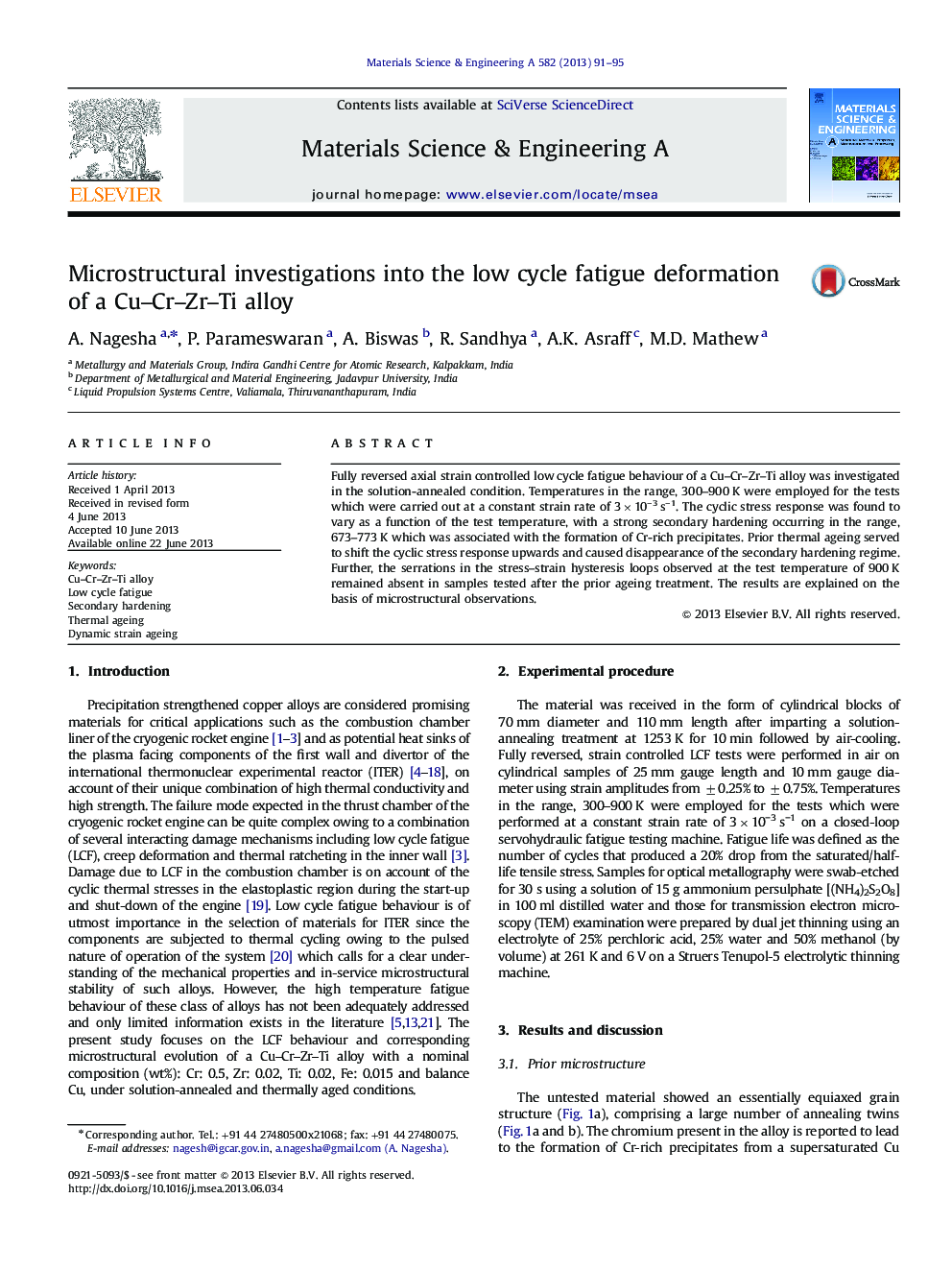| Article ID | Journal | Published Year | Pages | File Type |
|---|---|---|---|---|
| 1575953 | Materials Science and Engineering: A | 2013 | 5 Pages |
Abstract
Fully reversed axial strain controlled low cycle fatigue behaviour of a Cu-Cr-Zr-Ti alloy was investigated in the solution-annealed condition. Temperatures in the range, 300-900Â K were employed for the tests which were carried out at a constant strain rate of 3Ã10â3Â sâ1. The cyclic stress response was found to vary as a function of the test temperature, with a strong secondary hardening occurring in the range, 673-773Â K which was associated with the formation of Cr-rich precipitates. Prior thermal ageing served to shift the cyclic stress response upwards and caused disappearance of the secondary hardening regime. Further, the serrations in the stress-strain hysteresis loops observed at the test temperature of 900Â K remained absent in samples tested after the prior ageing treatment. The results are explained on the basis of microstructural observations.
Related Topics
Physical Sciences and Engineering
Materials Science
Materials Science (General)
Authors
A. Nagesha, P. Parameswaran, A. Biswas, R. Sandhya, A.K. Asraff, M.D. Mathew,
